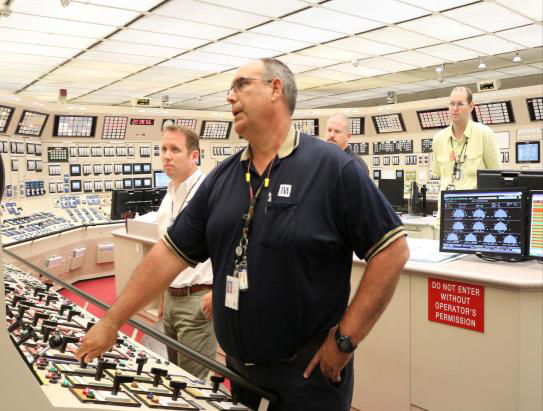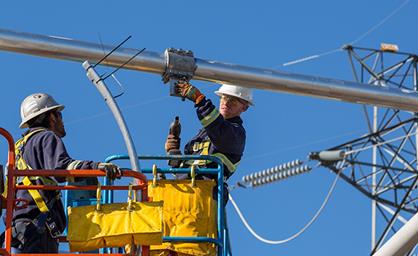COURSE OVERVIEW
EE0090 : Economic Dispatch of Power Plants

OVERVIEW
| COURSE TITLE | : | EE0090 : Economic Dispatch of Power Plants |
| COURSE DATE | : | Jan 20 - Jan 24 2025 |
| DURATION | : | 5 Days |
| INSTRUCTOR | : | Dr. Ahmed El-Sayed |
| VENUE | : | Abu Dhabi, UAE |
| COURSE FEE | : | $ 5500 |
| Request For Course Outline | ||
Course Description
A major challenge for all power utilities is to not only satisfy the consumer demand for power, but to do so at minimal cost. Any given power system can be comprised of multiple generating stations, each of which has its own characteristic operating parameters. The cost of operating these generators does not usually correlate proportionally with their outputs, therefore the challenge for power utilities is to try to balance the total load among generators that are running as efficiently as possible.
Further, the power station has incremental operating costs for fuel and maintenance; and fixed costs associated with the station itself that can be quite considerable. Things get even more complicated when utilities try to account for transmission line losses, and the demand fluctuation within shorter time. In all of these cases, however, the basic objective is to operate the system as inexpensively as possible.
The economic dispatch program optimally allocates load demand specifying real power and reactive power to be generated by a power plant among various power generators in a manner so that each of the power generators are operated within its optimal operating conditions as defined by a reactive capability curve. Allocating a power demand with consideration of the reactive capability curves of the power generators results in optimal generation of real power and reactive power as specified by the load demand. Alternatively, the economic dispatch program allocates load demand specifying real power and reactive power to be delivered by a power grid among various power plants wherein one or more of the various power plants have capacity limits exhibited by reactive capability curves. The classic problem is the economic dispatch of the generation systems to achieve minimum operating cost. This problem area has taken on a subtle twist as the public has become increasingly concerned with environmental matters, so that “economic dispatch” now includes the dispatch of systems to minimize pollutants and conserve various forms of fuel, as well as to achieve minimum costs. In addition, there is a need to expand the limited economic optimization problem to incorporate constraints on system operation to ensure the “security” of the system, thereby preventing the collapse of the system due to unforeseen conditions.
The purpose of this course is to introduce and explore a number of engineering and economic matters involved in planning, operating, and controlling power generation and transmission systems in electric utilities. This course is designed to provide a good overview of the economic dispatch problem in power generation. It covers Power generation characteristics, Economic dispatch problem, Thermal unit economic dispatch and methods of solution, Optimization with constraints, Using dynamic programming for solving economic dispatch and other optimization problems, Transmission system effects, The unit commitment problem and solution methods, Generation scheduling in systems with limited energy supplies, Production cost models, Automatic generation control, Interchange of power and energy, Power system security techniques, Least-squares techniques for power system estimation, and Optimal power flow techniques and illustrative applications.
link to course overview PDF
TRAINING METHODOLOGY
This interactive training course includes the following training methodologies:
LecturesWorkshops & Work Presentations
Case Studies & Practical Exercises
Videos, Software & Simulators
In an unlikely event, the course instructor may modify the above training methodology for technical reasons.
VIRTUAL TRAINING (IF APPLICABLE)
If this course is delivered online as a Virtual Training, the following limitations will be applicable:
| Certificates | : | Only soft copy certificates will be issued |
| Training Materials | : | Only soft copy materials will be issued |
| Training Methodology | : | 80% theory, 20% practical |
| Training Program | : | 4 hours per day, from 09:30 to 13:30 |
RELATED COURSES

EE0434 : Certified 11KV Electrical Safety
- Date: Feb 09 - Feb 10 / 3 Days
- Location: Dubai, UAE
- Course Details Register

EE0120 : Power Generation: GAS TURBINES, STEAM POWER PLANTS, CO-GENERATION AND COMBINED CYCLE PLANTS: Selection, Applications, Operation, Maintenance and Economics
- Date: Feb 09 - Feb 13 / 3 Days
- Location: Al Khobar, KSA
- Course Details Register

EE0050S3 : High and Medium Voltage Substation Design, Testing and Maintenance
- Date: Feb 09 - Feb 13 / 3 Days
- Location: Istanbul, Turkey
- Course Details Register

EE0060 : LV/MV/HV Circuit Breakers & Switchgears: Specification, Design, Operation, Inspection, Testing, Maintenance, Repair & Troubleshooting
- Date: Feb 09 - Feb 13 / 3 Days
- Location: Dubai, UAE
- Course Details Register
